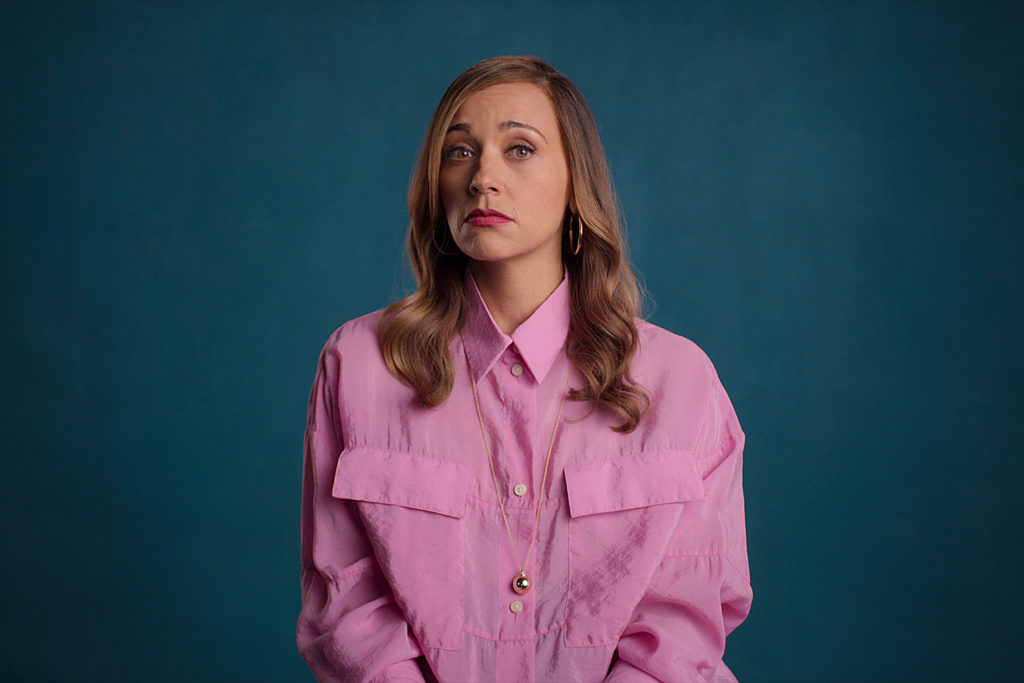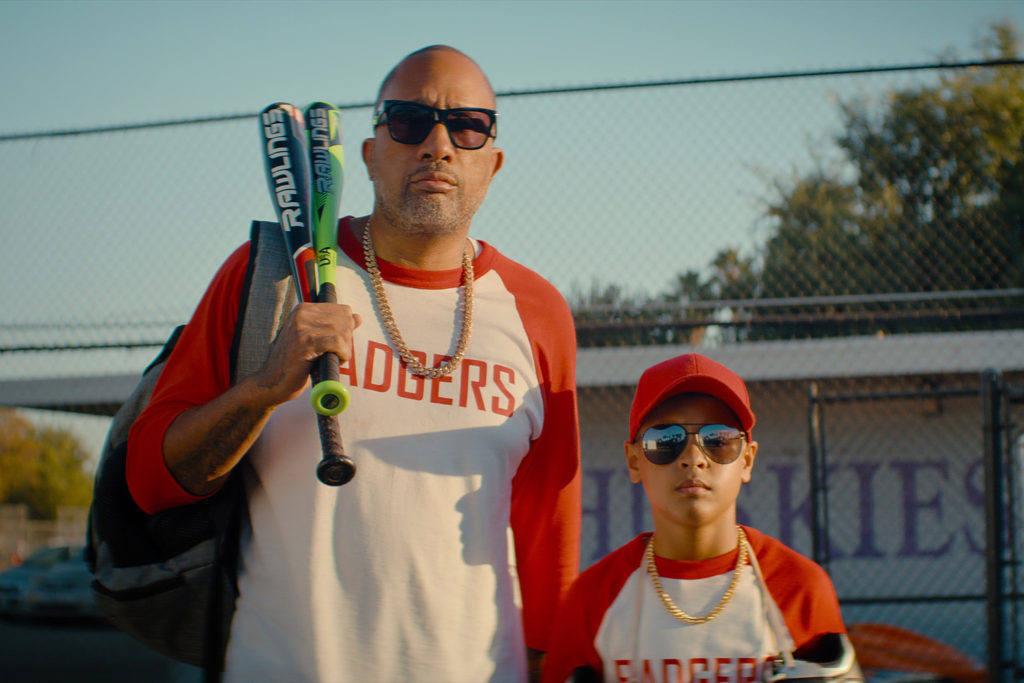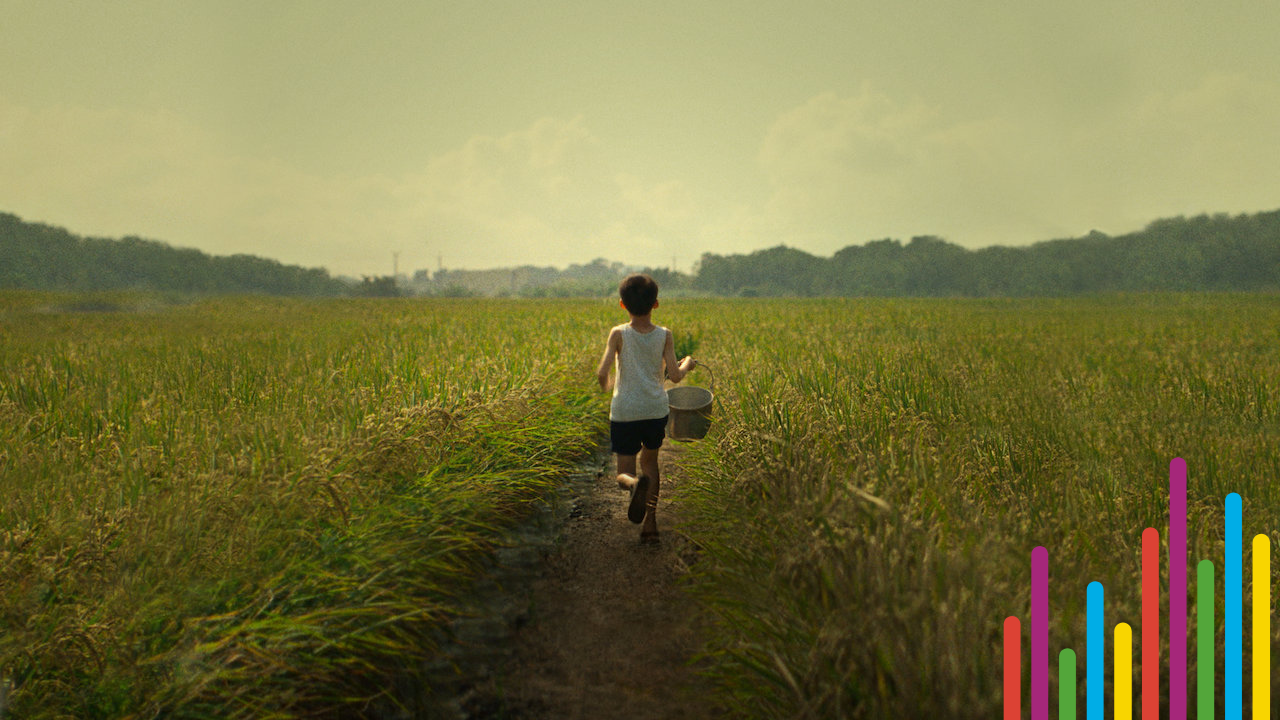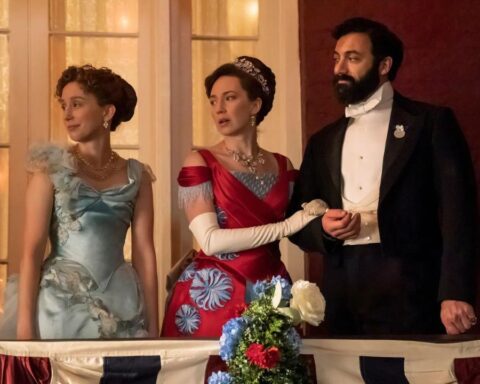Here’s my dirty little secret. I’ve always loved the greatest hits album. And why not? It is, by definition, the best of what there is. All killer, no filler. Sticky Fingers might be peak Rolling Stones, but you’ve still got to get past “I’ve Got the Blues” to get to “Dead Flowers” and “Moonlight Mile”. Which just isn’t a problem you’re going to have with Forty Licks. #blackAF is Kenya Barris’ greatest hits album. And your enjoyment of it is really going to depend on whether or not you liked his stuff the first time around.

You know Kenya Barris. If not by name, then at least by his work. He is the creator of Black-ish and its two spin-offs, Grown-ish and Mixed-ish. He wrote the critically acclaimed Girls Trip. And, back in the day, he co-created and produced America’s Next Top Model with Tyra Banks. (At one point in the series, his daughter hilariously refers to him as a “race-profiteer”) In 2018, Barris signed an exclusive deal estimated to be worth a potential $100 million to write and produce shows for Netflix.
Which is both how and why we have #blackAF. A brand new series in which a successful black comedy writer named Kenya Barris, is living the high life after scoring a high-priced development deal with, you guessed it, Netflix.
The conceit behind the series is a tried and tested one (so tried that it runs the risk of becoming tired). It’s Modern Family meets Curb Your Enthusiasm. Drea (Iman Benson), Barris’ teenage daughter, is putting together a documentary about her family as part of her application to film school and what we’re watching is essentially the thing that she made.
The one thing that’s clear from the get go is that this isn’t anything like the Jeffersons or the Cosbys. While those icons of black television are no doubt the wellspring from which the Barris’ originated, the family we see on screen are a far more confident reflection of reality. This isn’t a show that’s about educating a white audience. This isn’t a show that’s been sanitised so as to not scare them away. These are black Americans who are as comfortable showing off their strengths as they are their weaknesses. These are characters who are who they are.

And I know what you’re thinking. Didn’t he already do this with Black-ish? (He has.) Isn’t there already a Kenya Barris surrogate as played by Anthony Anderson? (There is.) In fact, it’s impossible to disentangle #blackAF from Black-ish. A lot of what we see here has been covered in one way or another across six seasons of that show.
But there is a difference. And one that goes beyond Kenya Barris now being able to play a cussier version of himself. #blackAF is to Black-ish what Curb Your Enthusiasm is to Seinfeld. Slightly more unafraid. A lot more unapologetic. It’s what happens when you remove the “ish”.
Kenya does his best Larry David. And with good reason. The trope of the self-loathing Jew is a common one in American popular culture. From Woody Allen to Philip Roth. From Sarah Silverman to Larry David. The characters in their many fictions – be they in films, or in literature, or in stand-up comedy routines – struggle with assimilation as they hunger for the American Dream.
Here Kenya Barris introduces us to the self-loathing black man. He questions his own success, unsure if he’s genuinely talented or merely riding what he calls a “black wave”. He’s enjoying his newfound fortune, but he is also deathly afraid of being trapped by its trappings. He worries that his son is too soft for not having grown up on the “streets”. He’s still looking for approval.
While a lot of this may ring familiar – especially if you’ve seen even one episode of Black-ish – watching Barris do Barris does add a layer of complexity to the whole thing. It makes the show even more self-aware. It makes the self-criticism even more scathing.
A Sidenote on Accidental Hilarity
#blackAF is also littered with Samsung products. Besides Drea saying that she could have shot the documentary she’s making on her “Galaxy”, characters also use Bixby – Samsung’s Siri equivalent – in a way that no one actually does in real life. No one. I’m not sure if the writers intentionally leaned into it or if the hilarity was purely coincidental, but Kenya and Joya (Rashida Jones) using Samsung Galaxy Folds really is the kind of odd flex you would expect from new money.

While #blackAF is frequently funny, not everything lands. The constant interludes into history (every episode has the phrase “because of slavery” in its title), complete with black and while photos and TED Talk like narration, can feel a little shoehorned. Even unnecessary. Watching it, I wished the writers were confident enough in their comedy to realise that this show didn’t need all of that context. We live in a world where Black-ish exists, and that series has already done all the heavy lifting.
The other unfortunate consequence of cribbing from yourself is that you run the risk of not living up to yourself. When Black-ish did an episode on Juneteenth, it felt urgent. Here, it feels like a plot point. It’s not bad. It’s just that Kenya Barris did it better the first time.

Minor nitpicks aside, #blackAF is still very much an enjoyable four hours of television. Part of it is because the series is made up of incredibly likeable characters. (Rashida Jones elevates the cast beyond what is rational or reasonable.) At the end of the day, this is a family that you wouldn’t mind spending some time with.
But the main reason #blackAF works is because it is all-in on the joke. Yes, it is a reprise. Yes, it is a best-of. But it is also this unashamedly self-centred acknowledgement of how great a show Black-ish actually is. Kenya Barris is essentially peacocking himself. That’s gutsy.
#blackAF
Netflix, Season 1, 8 episodes
Showrunner: Kenya Barris
Cast: Rashida Jones, Kenya Barris, Iman Benson, Genneya Walton, Scarlet Spencer, Justin Claiborne, and Ravi Cabot-Conyers









Follow Us